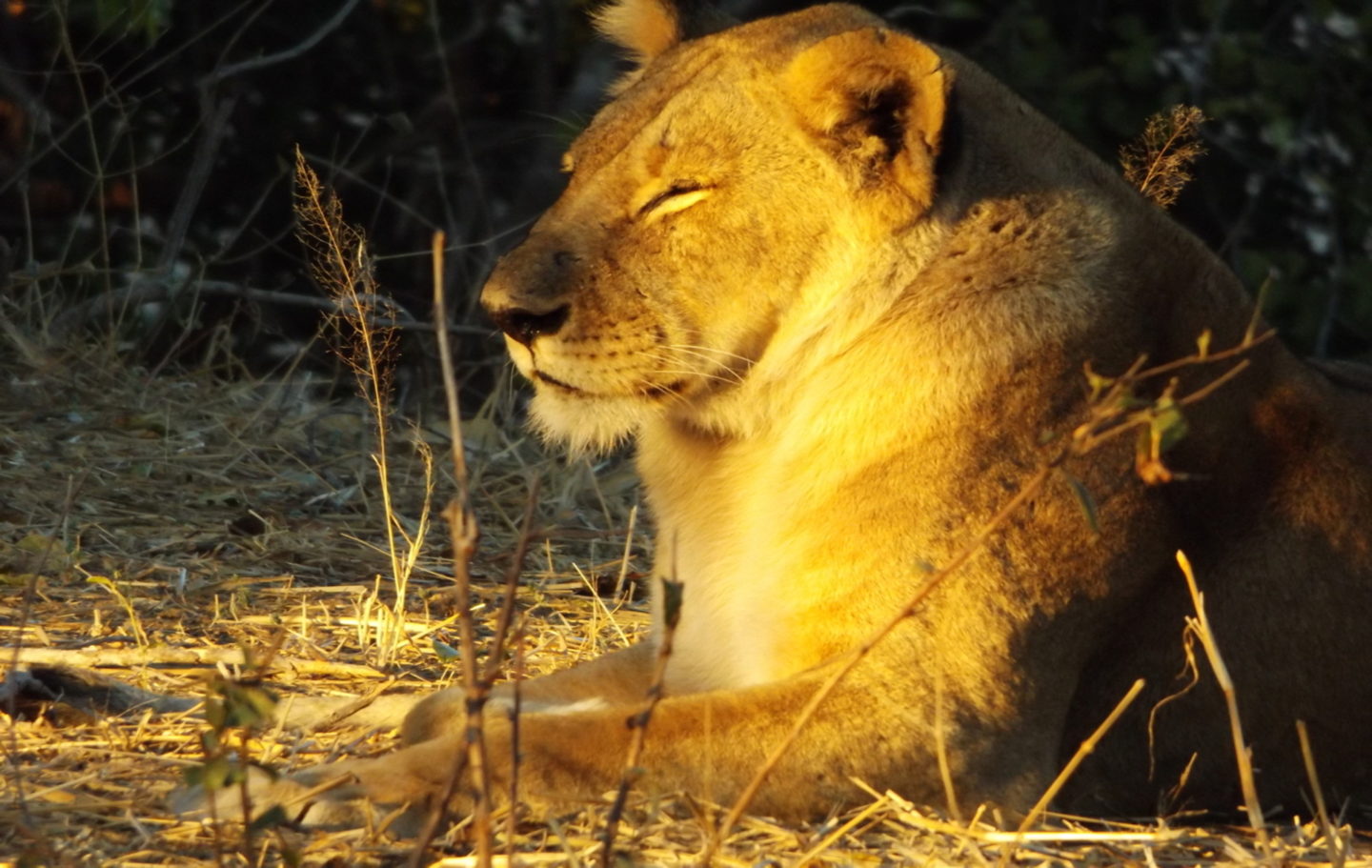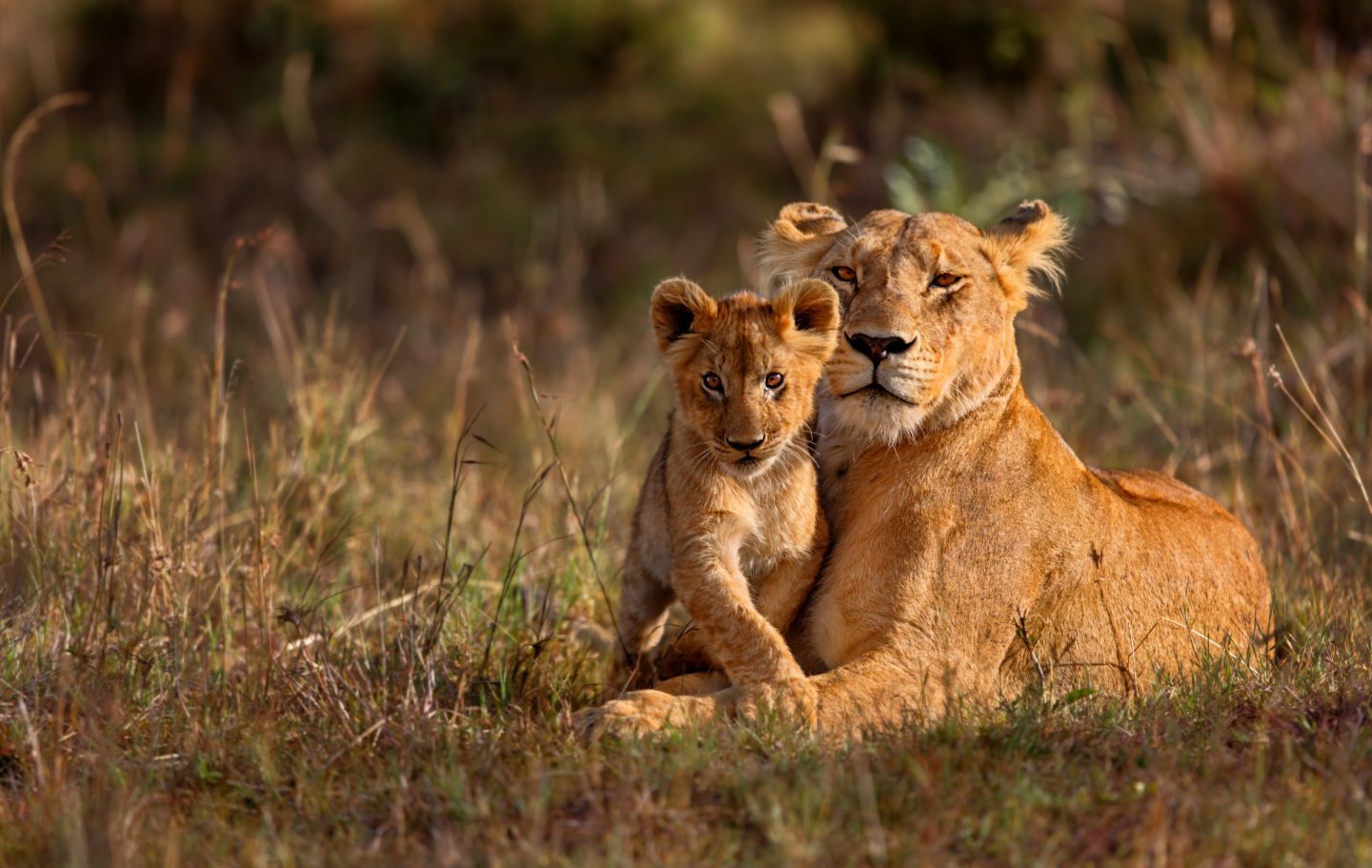
The Tusk-supported Ruaha Carnivore Project was established in 2009 by Dr Amy Dickman of Oxford University’s Wildlife Conservation Research Unit (WildCRU) following her MSc and PhD work studying lions in Tanzania. This previously unstudied and remote landscape in southern Tanzania is home to nearly a tenth of the world’s lions, the third biggest population of endangered African wild dogs and significant populations of cheetahs, leopards and spotted hyaenas. Today the project employs a field staff of over 70 Tanzanians and is still directed by Dr Dickman, who is a founder member of the Pride Lion Alliance, a National Geographic Explorer and author of over 60 scientific articles.
Amy Dickman said:
“My initial PhD study revealed extremely intense human-carnivore conflict in the Ruaha landscape with these species being poisoned, shot or speared by local people living around the national park. Villagers were suffering attacks on precious livestock and perceived little benefit from living alongside lions and other carnivores. By raising local awareness about conservation and providing tangible benefits from wildlife presence, the project set out to protect carnivores through a multi-disciplinary and community-based approach.
“Educational initiatives established by the Ruaha Carnivore Project include school twinning and feeding programmes. Support is currently provided to 16 schools and several hundred children are fed daily at school; full tummies increase attendance and attainment, and cooking provides employment for local women. Secondary scholarships are awarded to pastoralist children, with over 30 scholars to date being supported through their secondary education and beyond. Local students are assisted throughout their post-graduate studies and a number of adult education programmes have been highly effective in teaching local people about the value of wildlife – over 1,000 have been taken into the national parks and tens of thousands more have been reached through RCP’s mobile, fun educational DVD nights.
“The bravest and most influential warriors are now employed as Lion Defenders and benefit from conserving lions rather than killing them. Villagers are helped to build and fortify livestock enclosures (bomas) and livestock guarding dogs have also been trialled in the area. Local people are trained and employed in ecological research techniques to help provide reliable scientific data on Ruaha’s carnivore populations. Collared lions are tracked to mitigate conflict and to understand more about their distribution and this information is shared with authorities for conservation planning. Wildlife monitors collect camera trap images which convert into tangible benefits such as medicines and healthcare, forging a vital and direct link to conservation. And there is so much more!”
All these programmes are being expanded and are used to inform global conservation planning. Since establishing the Ruaha Carnivore Project in 2009, livestock depredation has decreased by 60% and carnivore killings by 80%. However, the balance between basic needs, traditions and conservation is complex and fragile – global conservation is everyone’s responsibility, and in order to preserve the world’s iconic animals, we all need to help those who struggle to live in their midst. RCP, with Tusk’s support, is leading the way on this and we hope you will join and support this work.
To support RCP or find out more about the programmes run by the project, visit www.ruahacarnivoreproject.com

